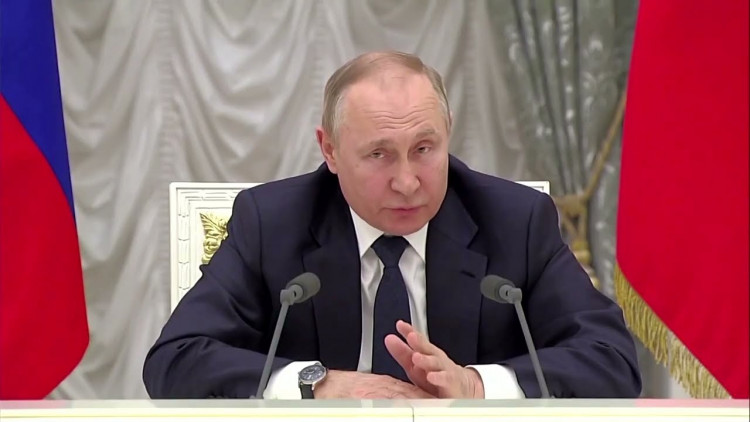Russian President Vladimir Putin has issued a new set of demands to end the war in Ukraine, calling for Kyiv to cede significant territories, withdraw troops deeper into its own country, and abandon its bid to join NATO. These conditions, which Putin articulated ahead of a major international peace conference in Switzerland, were swiftly dismissed by Ukrainian officials as untenable and disingenuous.
Speaking to diplomats at the Russian foreign ministry, Putin publicly updated his terms for ending the conflict, marking the first time he has done so since the full-scale invasion began in February 2022. Initially, Putin had demanded regime change in Kyiv and the "demilitarization" of Ukraine. The latest demands underscore his maximalist stance, including claims on territories not fully under Russian military control.
Putin insisted that Ukrainian forces must vacate the entire regions of Donetsk, Luhansk, Kherson, and Zaporizhzhia, and that these regions be recognized as Russian territory by international agreement. "As soon as Kyiv says it is ready to make this decision, begins the actual pull-out of forces from those regions and formally declares the abandonment of its plans to join NATO, we will instantly, that very second, order a ceasefire and begin negotiations," Putin stated.
The Russian president also demanded the lifting of Western financial sanctions as a precondition for a ceasefire. This week, the U.S. expanded sanctions targeting the Russian banking sector, currency trading, and technology exports, aiming to cripple Russia's war economy. The G7 countries have also agreed to use frozen Russian sovereign assets to support a $50 billion loan package for Ukraine's economy.
Putin decried these measures as theft, asserting, "Despite all the trickery, this theft will certainly remain a theft. And it will not go unpunished."
Ukrainian President Volodymyr Zelensky and his administration quickly rejected Putin's conditions. "Of course, there is no novelty in this, no real peace proposals and no desire to end the war," said Mykhailo Podolyak, an adviser to Zelensky. He interpreted Putin's demands as an attempt to undermine Ukraine's sovereignty and security.
The U.S. defense secretary, Lloyd Austin, weighed in, stating that Putin is in no position to make demands and that he could end the war immediately if he chose to. NATO Secretary General Jens Stoltenberg also rejected the conditions, labeling them as more aggression and occupation.
Analysts believe Putin's terms are designed more for Western audiences and to derail the upcoming peace conference in Switzerland, which excludes Russia. Tatiana Stanovaya, founder of R.Politik, commented, "This is not a peace plan but a series of maximalist demands directed at the West and Ukraine in exchange for ending hostilities. Moscow offers no concessions; there is no scope for compromise."
Putin's fresh demands come at a time of heightened tensions and ongoing conflict along the Ukraine-Russia border. Since October 7, the conflict has intensified, with both sides engaging in more aggressive military actions. The conflict has displaced over 53,000 Israelis and 94,000 people in Lebanon, according to the latest figures.
Zelensky has previously issued a 10-point peace plan, which includes the withdrawal of Russian troops from all Ukrainian territories and the establishment of a special tribunal to investigate war crimes. These conditions starkly contrast with Putin's demands and highlight the vast chasm between the two sides' negotiating positions.
Despite the grim outlook, Putin's speech reiterated his stance that any peaceful resolution must involve Russia and be based on its terms. He dismissed the upcoming peace summit as "just another trick to distract everyone's attention." Putin argued that without Russia's participation, it is impossible to achieve a lasting peace in Ukraine or broader European security.




